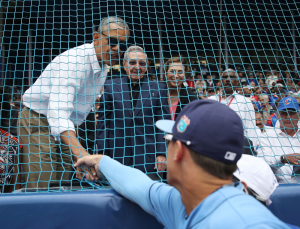At a Time of High-Charged Events, New Law School Poll Sheds Even-Handed Light
There are ways in which the volatility of the current political scene seeped into the release Wednesday of the latest round of Marquette Law School Poll results. But there are more ways it didn’t.
An extraordinary time in American politics has brought an extraordinary week in Wisconsin politics, with the state’s presidential primary on April 5 standing as the next major event on the political calendar. All five of the remaining major candidates for president have spent at least two days in the state this week, with several developments of national significance occurring on our home turf.
The passions of thousands attending events with Republican candidate Donald Trump and Democratic candidate Bernie Sanders, the political drama of the battle (including insults) between Trump and Ted Cruz, the search by Hillary Clinton for ways to build more fire behind her support in Wisconsin, a three-hour “town hall meeting” with Trump, Cruz, and John Kasich, telecast by CNN from Milwaukee’s Riverside Theater – this is just aa partial list of events in Wisconsin this week.
So stakes are high as Wisconsin returns to being a battleground in the presidential race. High stakes bring high tension and high levels of partisanship.
And then there was a release of the poll at Eckstein Hall, with Professor Charles Franklin, director of the Marquette Law School Poll, and Mike Gousha, distinguished fellow in law and public policy at the Law School, leading a tour of the new results. Calm. Level-headed. Insightful. Strictly non-partisan. Much the same as several dozen poll-release events since the Marquette Law School Poll started in 2012.

